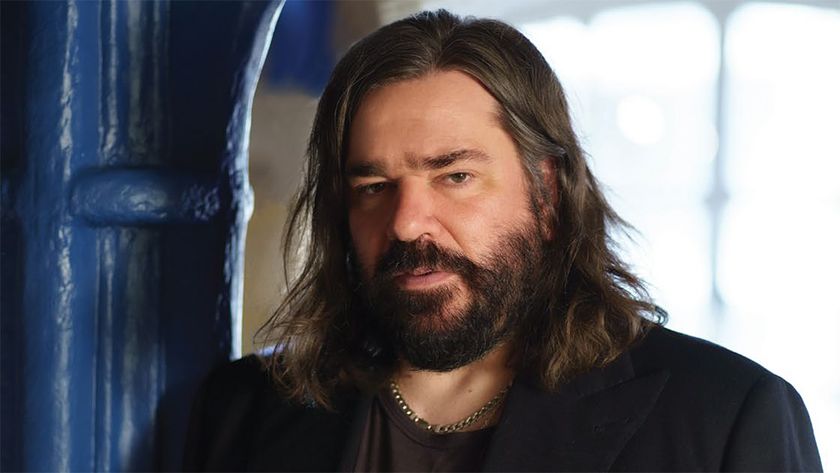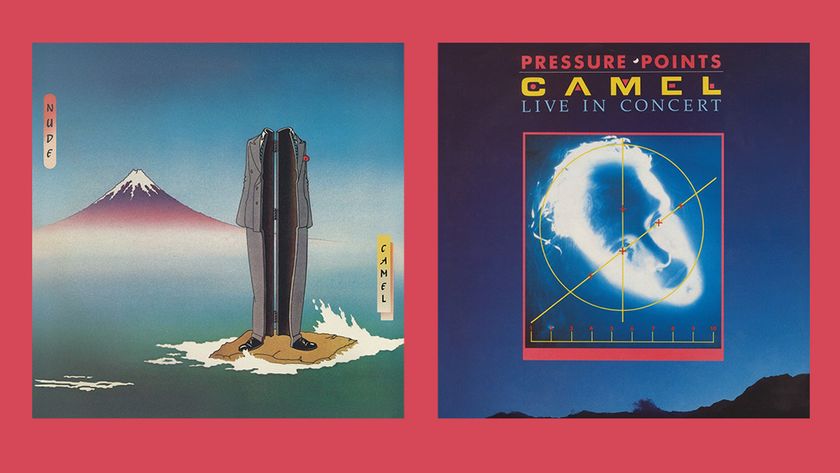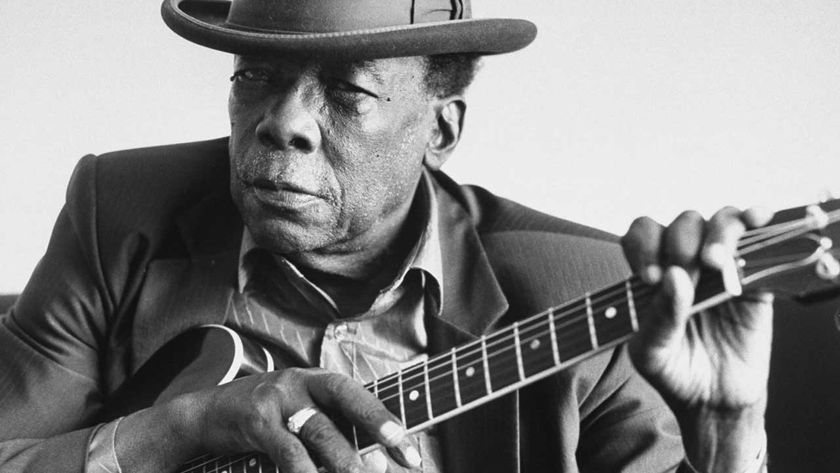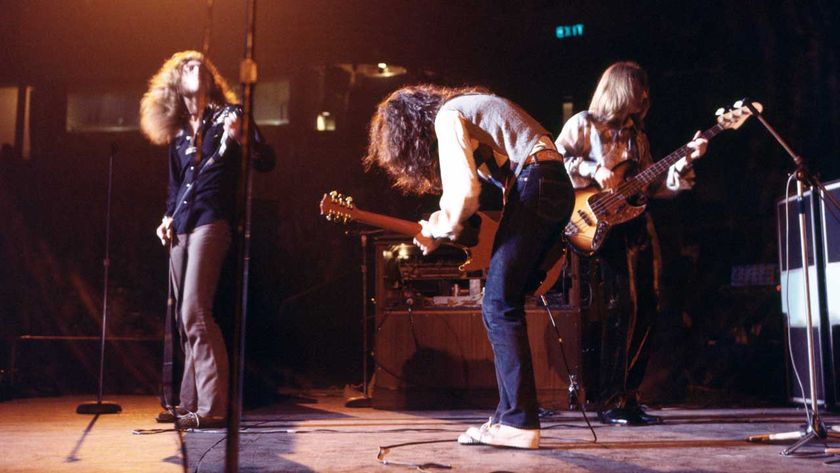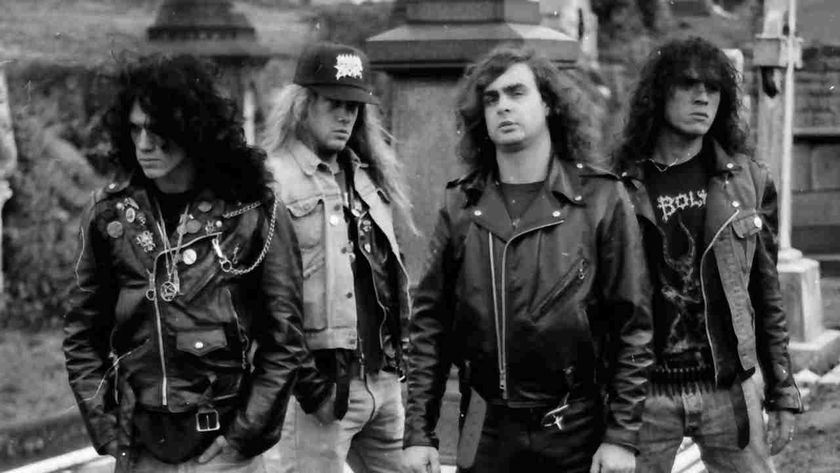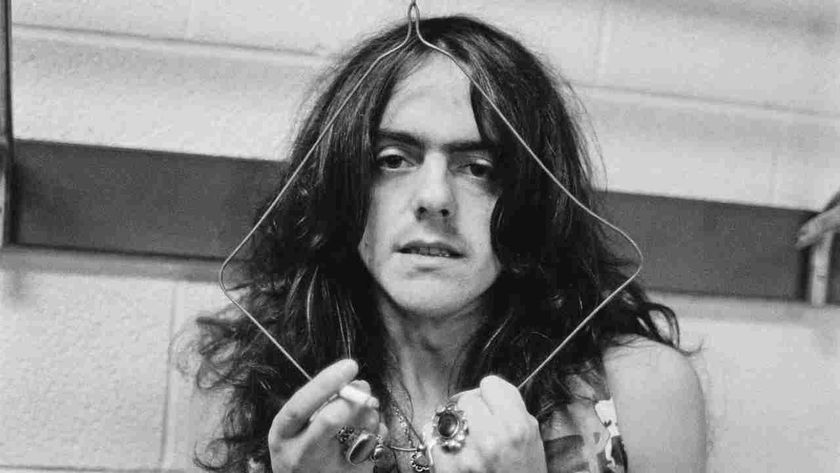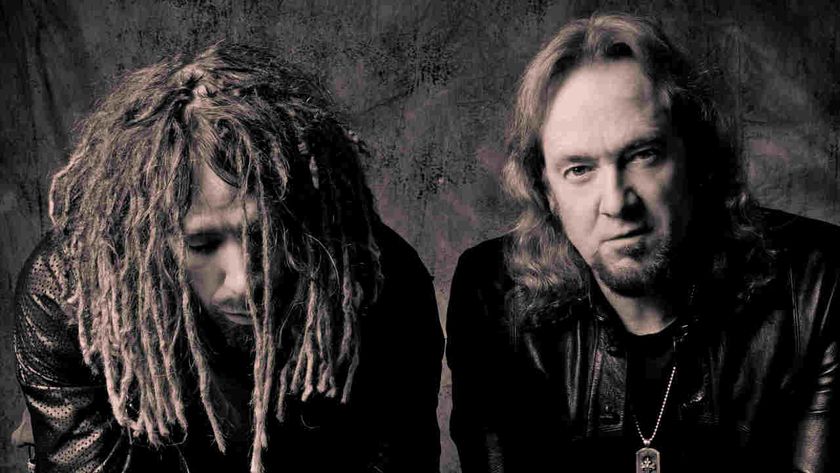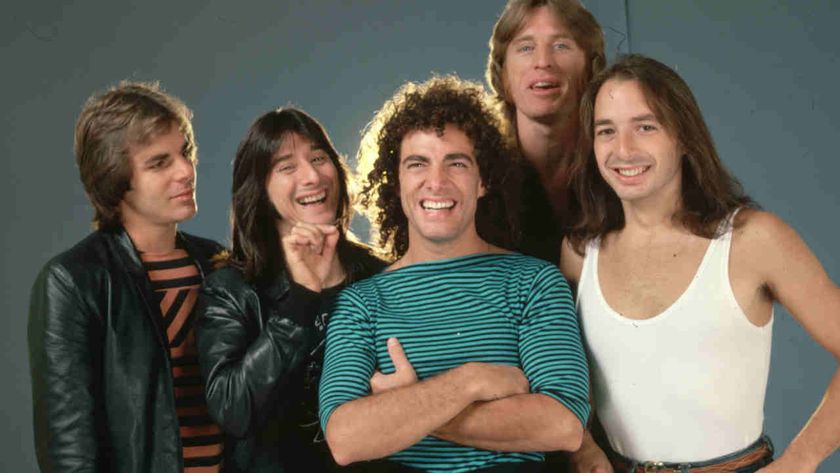Back in issue five of Prog Magazine, back in 2009, we explored the relationship between Christmas and progressive rock...
It’s that time of year when the cynics come out in force, ready to ridicule the way that Christmas has been embalmed by commercial desires. It’s also a season when, if we’re honest, even the most outrageous rockers seem prepared to compromise and dissipate their credibility, in search of an extra penny or three.
The connection between Yuletide and rock’n’roll is worryingly strong – mostly predicated on a never-ending series of awful, cloying reinterpretations of seasonal classics. However, it comes as no surprise that the progressive world has been embracing Christmas for decades, albeit with mixed results.
“A lot of prog rockers got their introduction to music through churches,” suggests Asia and Yes keyboard player Geoff Downes. “We were inspired by it, and therefore this has stayed with us.”
Arguably the first progressive band to touch on Christmas were Jethro Tull. They recorded Christmas Song in 1968 (although it didn’t get released until four years later, on the Living In The Past album). Since then, they’ve recorded Ring Out, Solstice Bells (for the 1976 album Songs From The Wood) and Another Christmas Song (on 1989’s Rock Island). In 2003, they even released The Jethro Tull Christmas Album.
“I think there is an uneasy, but obvious, relationship between prog rock and Christmas,” believes Tull mainman Ian Anderson. “A lot of people in this type of band seem drawn towards the time of year. Perhaps it’s because this is so much a part of our cultural heritage. It may also have something to do with the fact that Christmas is overlaid onto the winter solstice, and that in turn nods towards our pagan past.”

The range and diversity of progressive types who’ve been inspired to celebrate, or at least acknowledge, Christmas is remarkable, thereby accentuating Anderson’s assertion of a bond between the genre and the season. No less than four people closely allied to Yes have recorded Yule albums.
Vocalist Jon Anderson’s 1985 release 3 Ships, a mix of original material and traditional songs, was overtly a celebration of Christmas, while his 1995 record Angels Embrace (mostly instrumental) nods towards the festival.
“I find Christmas very moving,” says the former Yes singer. “It’s an inspiring time of the year, when the spirituality of man takes over. I find this invades my thoughts, even on a subconscious level.”
Prog columnist Rick Wakeman succumbed to the power of Christmas, on the 2000 album Christmas Variations, while bassist Chris Squire and drummer Alan White teamed up for the 1981 single Run With The Fox. Says Squire: “We did Run With The Fox when we were on our first sabbatical as a band, and we really hadn’t had a break until then, but we still wanted to keep our hand in. So that song was my attempt at doing a Greg Lake, you know, trying to write the big Christmas hit that would be wheeled out every year. We used the Swiss choir on there – the one we used for my Christmas album [Chris Squire’s Swiss Choir]. I’ll be honest, even by my standards, that song is pretty overblown.”
Of course, nobody will ever forget (for better or worse) bassist Greg Lake’s 1975 Number Two hit I Believe In Father Christmas (included on the ELP album Works Vol. II), which is actually a protest at the way Christmas had been so commercialised.
Says Lake: “It’s a very quirky song. And was never written with the intention of it becoming a hit single but rather as an album track, making quite a serious comment about how Christmas had changed from being a celebration of peace on earth and goodwill to all men, into one huge and disgusting shopping orgy.”
Keyboard maestro Keith Emerson acknowledged the season with 1988’s The Christmas Album. This allowed him to be creative around, yet respectful to, the traditional music he was adapting.
“For most of us, Christmas is centred on the family aspect,” believes Ian Anderson. “It’s about belonging and celebrating – but not necessarily about the Jesus part.”
There’s little doubt that many of the prog rockers who’ve tackled Christmas themes down the years have approached these works via a musical, rather than religious, perspective. From the Moody Blues’ December (2003) to Annie Haslam’s It Snows In Heaven Too (2000) and Mike Oldfield’s single In Dulci Jubilo (1975 – which got to Number Four on the chart), artists have used the subject to develop their own themes and ideas.
“I remember how exciting everything seemed at Christmas in my childhood,” recalls Moody Blues’ Justin Hayward. “And when you grow up that feeling stays with you. What we wanted to do was capture what it meant to be young and believe in Christmas as a special time.”
Marillion have gone even further. They’ve taken the concept of giving presents at this time of the year to a new level, by sending members of their fan club a free album at Christmas every year since 1998, although the contents rarely – if ever – have a seasonal flavour.
“It’s our way of saying thanks to the fans,” states Marillion keyboard player Mark Kelly. “And if you are going to give something away, then it makes sense to do it when it appears to matter to everyone.”
In times past, there have been some fascinating projects built on the foundations of Christmas. Robert Berry – who, with Keith Emerson and Carl Palmer, formed 3 in the late 1980s – created The December People. In 2001, they released Sounds Like Christmas, featuring members and former members of King Crimson, Asia and Kansas. The album interpreted carols in the styles of giants such as Yes, Pink Floyd and Genesis.
Mostly Autumn’s Spirits Of Christmas Past EP (2005) mixes originals such as the title track – which is a rich showcase for the band’s talents – with covers.
Over recent years, no band has been busier in releasing Christmas-style albums than the US crew the Trans-Siberian Orchestra. They’ve put out three in all, starting with 1996’s Christmas Eve And Other Stories. This was followed two years later by The Christmas Attic, a concept album woven around the festival. In 2004 they put out another conceptual record, The Lost Christmas.
In fact, the TSO have only ever released two non-Christmas albums, and they accentuated this connection to the Yuletide period with the box set The Christmas Trilogy, containing all three albums, plus the DVD The Ghosts Of Christmas Eve.
“We got onto the Christmas theme almost by accident,” says Trans-Siberian Orchestra founder Paul O’Neill. “It just seemed that we were constantly playing shows at this time of the year. So we took it a stage further, and felt that if we were always out touring during the Christmas period, then let’s make the connection even stronger.”
In 2001, Hawkwind released Yule Ritual – Live At The Astoria, which has no musical relationship with Christmas; it was just recorded during that time of year. But again, it flagged up that even the most unlikely artists feel the need to make a pact with Santa!
Mention must also be made of Styx (All I Want For Christmas Is You, Ring The Bells), Pendragon bassist Peter Gee (Falling Snow) and Dream Theater keyboard player Jordan Rudess (Christmas Sky), ex-King Crimson guitarist Adrian Belew (We Three Kings), Argent (Christmas For The Free) and Queensrÿche (White Christmas).
Even Frank Zappa couldn’t resist the temptation. However, his contribution – Uncle Bernie’s Farm (from 1967’s Absolutely Free) is typically caustic, as he once explained: “I think the sort of lyrics you get in Christmas songs have contributed to the general aura of bad mental health in America. These lyrics create expectations which can never be met in real life, and so the kid who hears these tunes doesn’t realise that that this isn’t real.”
In the end, prog rock songs and albums celebrating – or, conversely, castigating – Christmas are a mixed bag. Some are intensely brilliant and inventive, while others are merely paying lip service to the time of year, and there are certain risible contributions as well.
Overall, though, there’s something altogether beneficial about prog’s ongoing fascination with Christmas. Pink Floyd, rarely touched by such things, even performed one such number, Merry X-Mas Song, during a BBC session in 1975. It’s still unreleased, apart from bootlegs, although you can now listen to it below. But if it’s good enough for the Floyd…


